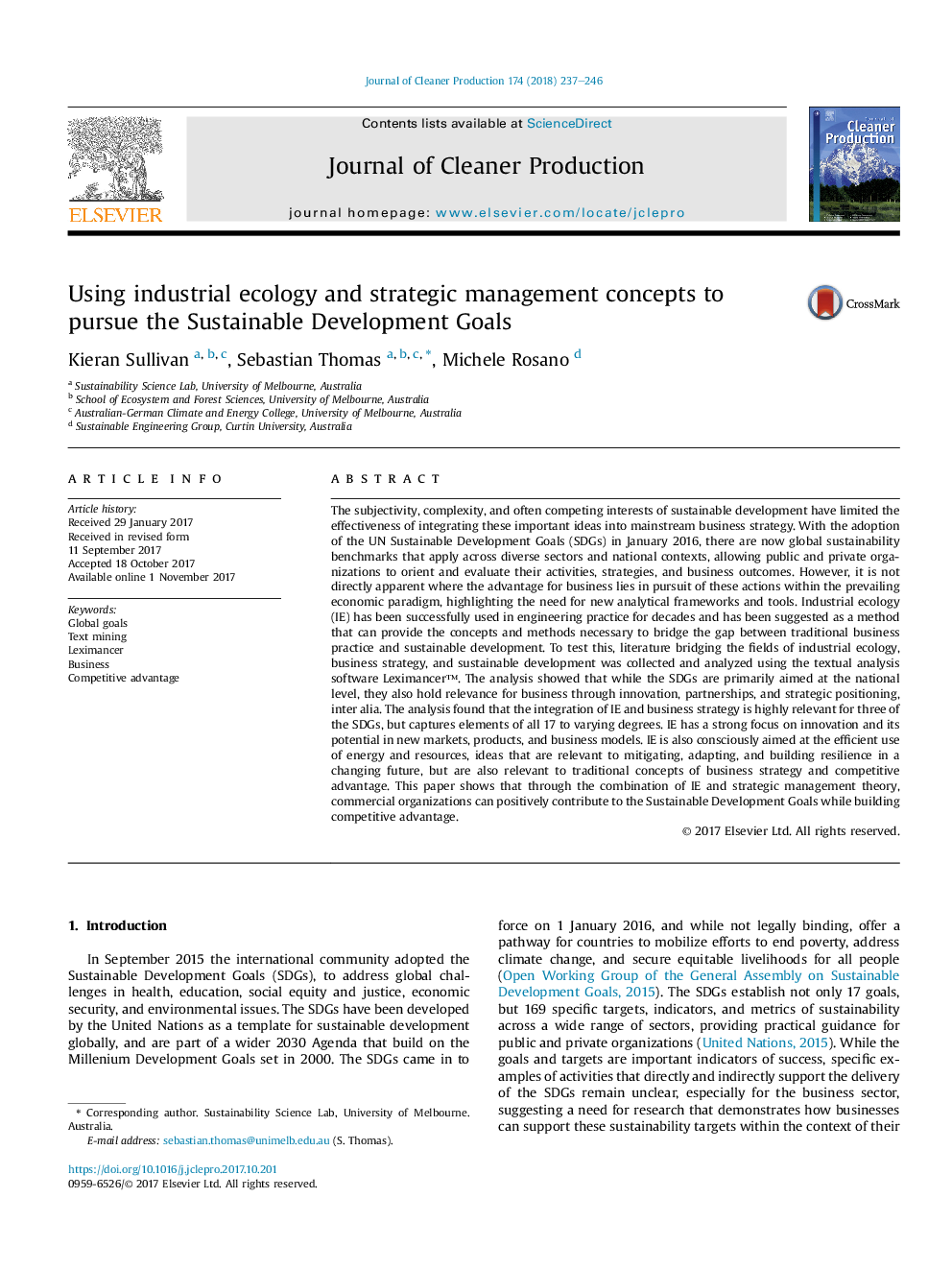ترجمه فارسی عنوان مقاله
استفاده از محیط زیست صنعتی و مفاهیم مدیریت استراتژیک برای پیگیری اهداف توسعه پایدار
عنوان انگلیسی
Using industrial ecology and strategic management concepts to pursue the Sustainable Development Goals
| کد مقاله | سال انتشار | تعداد صفحات مقاله انگلیسی |
|---|---|---|
| 81686 | 2018 | 10 صفحه PDF |
منبع

Publisher : Elsevier - Science Direct (الزویر - ساینس دایرکت)
Journal : Journal of Cleaner Production, Volume 174, 10 February 2018, Pages 237-246

